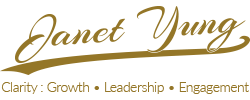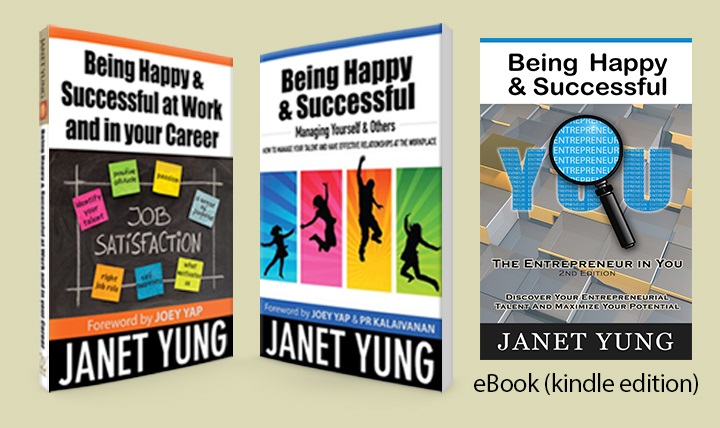In the previous chapter, I wrote about the trend towards Mindfulness where I found a convergence of both Western and Asian thinking. In recent years, this development seems to be increasing where there has also been a big push towards identifying Natural Talent and Potential as evidenced by the following…
1. Strengths-Based Technique to identify a Person’s Natural or Innate Talents
In 2003, an American psychologist named Donald O. Clifton (February 5, 1924, in Butte, Nebraska – September 14, 2003) was given the title of “the father of Strengths-Based Psychology and the grandfather of Positive Psychology“ by the American Psychological Association[1]. This Strengths-Based Psychology is based on a philosophy of using talents as the foundation for consistent achievement of excellence. Clifton hypothesized that these talents were “naturally recurring patterns of thought, feeling, or behaviour that can be productively applied.”[2] Together with his colleagues and The Gallup Organization, they conducted a 30-year research on more than 2 million people to identify a person’s innate talent to maximize their strengths[3].
In the study, they found that those who know their talents and have the opportunity to use them at work, are 6 times more likely to be engaged in their jobs. In addition, these people are more than 3 times as likely to report having an excellent quality of life.
2. Career Assessment process called Area of Destiny – the skill, capability or trait that differentiates YOU
Separately, Jack Welch and Suzy Welch advocated the thinking: “about who you are and what would make your life abundant in meaning, impact and happiness by identifying the skill, capability, or trait that really differentiates you from the pack[4]” in their latest bestseller, “The Real Life MBA”.
In one of the stories, one of the personalities reported:
“My happiness is huge and my wife and kids are so much happier too. I never felt like I’m working – I’m doing what I was born to do. My only regret is it took me twenty years to get here.”
To them, the key question to ask is, “What are you better at than the majority of people? In fact, what are you better at than most people?”
3. Asian Bazi Personality Profiling System
Similar to Western personality profiling systems, one of the key aim of this system is to understand why we behave the way we do. The Asian Bazi Personality Profiling system:
- Focuses on Self Awareness, understanding our INBORN Talent and our preference in working environment and leadership styles with suggestions on how we can MAXIMIZE OUR POTENTIAL.
- Faster and Easier track to develop this NATURAL Talent into our competencies as we are more comfortable with our profile.
- Become Happy and Successful in Career and Business
Understanding others and their profile will aid in team communication and effectiveness to achieve companies’ goals. - In an article in the book, “2015 Harvard Business Review’s 10 Must Reads”, Claudio Fernández-Aráoz advocated that the focus on hiring in the 21st Century should be on potential[5].
Studies, research and reviews of this 2,000-year-old system have been consistently recorded and updated over the last 2 millennium. This system has its roots and basis similar to that of Traditional Chinese Medicine, which is gradually being accepted within departments in hospitals today. The development of this type of ancient Chinese metaphysical study – Chinese astrology (which includes Bazi or Four Pillars) is tied to that of astronomy, which started during the Zhou dynasty (1046 to 256 BC) and came to flourish during the Han Dynasty (2nd century BC to 2nd century AD).
An interesting note is that the system looks at how the planetary movements in the Solar system (which includes the Sun and Moon) influence Earth, the living things on Earth and thus human behaviour and characteristics. When I first started studying and researching this system a decade ago, I was doubtful about the planetary movements’ impact on us.
However, on a deeper level thinking, if all living things on Earth are affected by:
- The presence or non-presence of, distance or protection from (Ozone layer) the Sun,
- The Sun for food production of the plants, vitamin D for our skin and other benefits/ detrimental effects on human beings,
- The Moon which affects the level and height of tides depending on its distance from Earth,
What proof do I have that these planetary movements do not affect me and others living on Earth? This is especially so after I have received numerous positive feedback from clients – who utilized this system when they are at cross-roads in their career or when improving team harmony and effectiveness in my consultations.
As mentioned previously, all these developments are intriguing especially with the similarities and convergence of Asian and Western thinking towards discovering our natural talents. My interests heightened when I found several similarities while I was comparing the Asian and Western Personality Profiling Systems (I will share more on this in my next chapter). Even though there are many nay-sayers that critique that so long as we put in our best efforts, we can overcome the lack of natural talent, it is important to remember that natural talents such as those displayed by top athletes, musicians, dancers and etc. are not easily duplicated. Even if we spent the same amount of time and effort as these talented performers, we may not be able to achieve the same kind of results. It would thus, be better for us to identify what is naturally occurring to us, develop these talents to competencies and excel in them to be successful in life. In addition, as these talents are natural to us, we will usually have more passion in using our talents at work and would in the end be happier when we become successful!
If you would like to know your unique personality profile based on the time-tested Bazi – Asian personality profiling system, you can get the following personalized reports online:
Janet Yung (amazon.com/author/janetyung)
Feng Shui and Bazi Consultant. Author. Harmony Adviser.
References:
[1] Findagrave.com. (2015). Dr Donald O. Clifton. Retrieved 10 July, 2015, from http://www.findagrave.com/cgi-bin/fg.cgi?page=gr””.
[2] Hodges, T.D., & Clifton, D.O. (2004). Strengths-based development in practice. In A. Linley & S. Joseph (Eds.), Handbook of positive psychology in practice. Hoboken, New Jersey; John Wiley and Sons, Inc.
[3] Buckingham, M. Clifton, D.O. (2001) Now, Discover your Strengths: How to Develop Your Talents and Those of the People You Manage. ISBN 13: 978-1-4165-0265-4
[4] Welch, J. & S. The Real Life MBA. ISBN 978-0-00-759439-9
[5] Fernández-Aráoz, C. 21st Century Talent Spotting in 2015 Harvard Business Review’s 10 Must Reads. ISBN 978-1-63369-021-9




